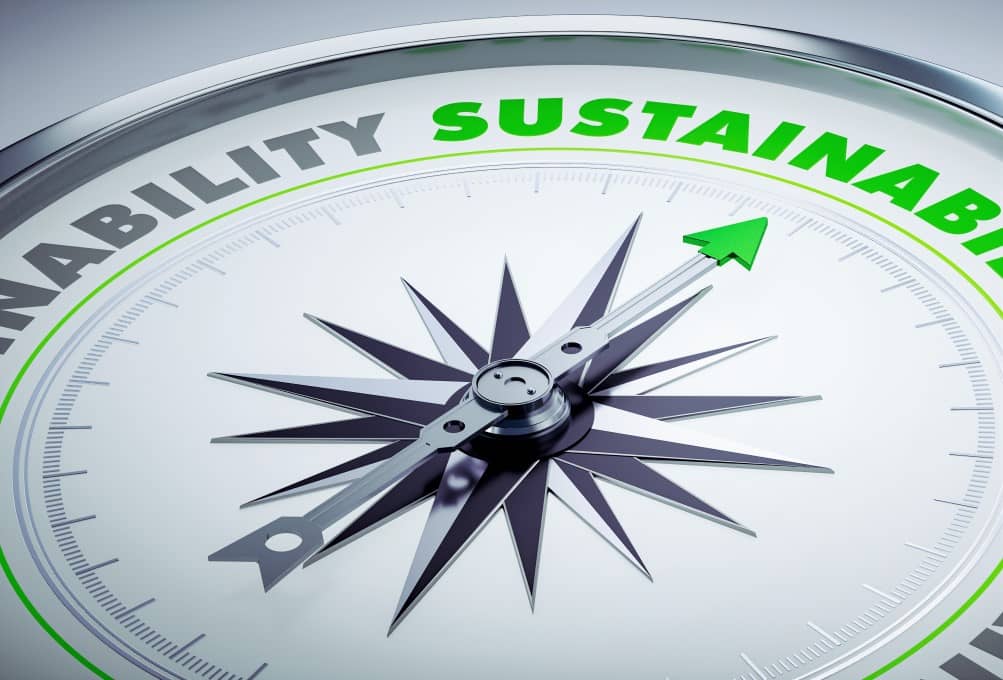
Supply Chain Sustainability & Resilience
Supply Chain Sustainability & Resilience
Why Are Supply Chain Sustainability and Resilience Important for Your Business?
When demands along the global supply chain are becoming more challenging and environmental and social considerations are being incorporated into supply chain strategies, redesigning your supply chains can provide greater resilience and efficiency. Sustainable supply chains allow you to control costs more effectively, offer excellent stability, and reduce reputational risks.
What Is the Goal of Increasing Supply Chain Sustainability & Resilience?
The goal of increasing supply chain sustainability & resilience is to
- set up the company's supply chain so that it both contributes significantly to the company's sustainable business activities
- and is significantly less vulnerable to disruptive events.
In this context, supply chain sustainability and supply chain resilience can be consistent. For example, local sourcing strategies can help build strength while reducing emissions. This creates a sustainable and resilient supply chain that positively impacts your reputation.
In the wake of climate change, sustainability requirements for companies will continue to increase in the coming years and decades. In manufacturing companies, the focus is shifting to the sustainable supply chain as the leading emitter of emissions in the company.
Here, demands on the supply chain come not only from external, regulatory side and governance structures, such as through higher CO2 prices or emissions requirements. Companies are setting ambitious sustainability targets during increased corporate social responsibility (CSR). By implementing sustainability as an essential aspect of supply chain management, you fulfill your due diligence obligations and contribute positively to climate change with a low carbon footprint.

In addition to these challenges, companies must also be able to deal with increasing disruptive events in the supply chain. The Covid-19 pandemic and its worldwide implications, coupled with escalating global goods prices, are just two instances of how these events have become a regular occurrence rather than an anomaly.
What Benefits Do You Achieve by Increasing Supply Chain Sustainability & Resilience?
As a company, you contribute to a more sustainable and lower-emission economy by introducing supply chain sustainability. Show these successes, for example, in sustainability reports. Furthermore, these emissions savings will also bring significant cost avoidance in the future as CO2 prices rise substantially.
Likewise, disruptive business models are having a considerable impact on target markets. supply chain resilience can help your supply chain take proactive steps to prevent delivery failures and reduce costs during disruptive events.
Overall, sustainable supply chain management and the development of supply chain resilience result in a significantly increased profit contribution.
In summary, you can achieve the following benefits by increasing Supply Chain Sustainability and Resilience:
- Contribute as a company to a more sustainable and lower-emission economy
- Meet increasing requirements and regulation
- Achieve significant cost reductions through emissions savings
- Reduce and avoid supply disruptions and cost increases in disruptive events
- Avoid reputational risks
Ensure resilient supply chains
Want to build a sustainable and resilient supply chain? Schedule a conversation now.
How Does HÖVELER HOLZMANN Go About Increasing Supply Chain Sustainability & Resilience?
- A project to increase supply chain sustainability & resilience regularly starts with a comprehensive analysis of the current situation. On the one hand, a CO2 footprint is drawn up for optimization of the areas. On the other, potential risks in the supply chain are identified (e.g., dependencies on specific suppliers, regions, or transport routes).
- In the second step of analyzing weak points and the derivation of measures, optimization measures are defined and evaluated concerning their impact on emissions, costs, risk reduction, and investment requirements. All estimates are presented to the steering committee with a prioritization recommendation
- Following the steering committee, the approved measures are detailed and ready for implementation so that implementation and implementation control can begin.
These Drivers Influence Sustainable Supply Chain Management
- Consumers: There is an increasing demand for sustainable and clean products. With a supply chain strategy that meets these demands, you position yourself as a company and brand in the market.
- Investors and partners: Besides the economic aspect, environmental and social factors are moving further into focus. Consider the assessments of potential investors and partners.
- Regulatory developments: Supply and value chains should comply with regulatory requirements and be reviewed and controlled in risk management. To ensure that you fulfill your corporate duty of care, you should also regularly draw the attention of suppliers and other stakeholders to the Supply Code of Conduct.
Key Questions in the Implementation of a Sustainable and Resilient Supply Chain
When implementing sustainable supply chains, companies often face numerous questions:
- How do you meet the "sustainability" requirement?
- How to transform complex supply chains and effectively address the multitude of challenges?
- How do we ensure that we can identify opportunities and risks within our market early on and proactively respond to disruptive events?
- How can we develop and implement IT management and monitoring systems along with our requirements?
- Are we relevant in the social context and to investors and partners?
Sustainable Procurement: Learn more
HÖVELER HOLZMANN - a valantic company
Bahnstraße 16
40212 Düsseldorf
Tel.: +49 (0) 211 - 56 38 75 - 0
Fax: +49 (0) 211 - 56 38 75 - 69
Mail: info@
Are you interested in our corporate development? We will keep you up to date:



